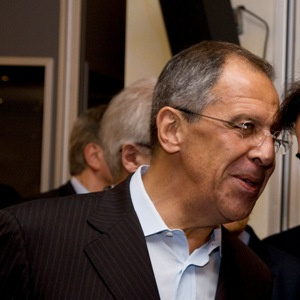The Other Side of Lavrov’s Nuclear Plan

Vershinin is the Russian Foreign Ministry’s special envoy and the deputy general of the Middle East and Persian Gulf at the foreign ministry, and is on a mission to deliver his country’s political advice in regards to Russia’s new plan and prepare the grounds for negotiations between Tehran and Europe. He is to deliver a plan which Tehran has not shown any interest in yet, and also hopes to raise the interest of the West as well.
The interesting point is that Europe and the US have not welcomed this plan, nor welcomed Iran’s hesitant interest in it. According to one analysis, the international community (besides China and Russia) does not see any involvement from their side in this plan. Therefore, if it fails to bring them to the negotiation table, Russia has failed in its plan, which will further legitimize sanctions and pressures on Iran. Based on another analysis Mr. Lavrov’s plan is local; in other words, Russia, which has failed to catch up with Turkey’s active policy in regards to regional developments, is trying to gain the upper hand in Iran’s nuclear case and prevent Turkey from receiving all the credit for any deal.
Vershinin referred to regional developments and mentioned that it is up to the people of these countries to define their future without the intervention of other countries; he also demanded that Western ideas and solutions be avoided in solving the problems in the developments.
Even though Turkey is active in Iran’s nuclear dossier-- bedsides being active in the regional issues including the situation in Libya, Egypt, Syria, Iraq and even Afghanistan-- its failure in the Istanbul summit has created the expectation that Iran should welcome Lavrov’s plan. However, Turkey has repeatedly said that it is only hosting the 5+1 negotiations and has no responsibility regarding their content, yet Moscow wants to be both the host and the planner of the negotiations. This means that the host and the planner of the negotiations is not from the West. Tehran has repeatedly said that Iran is after regional solutions to the problems as well. Therefore, even though we cannot accept any major change, we can hope that Iran’s demands will be paid more attention to through this plan.
The step-by step plan indicates that in return for any step Iran takes in responding to the International community’s demands, an equivalent amount of sanctions on it will be removed.
Ali Akbar Salehi and Mahmoud Ahmadinejad have announced that Iran will not retreat or suspend its activities; however Salehi has welcomed Russia’s plan and has expressed hope that this new plan can be a pretext to the normalization of relations between Iran and Europe. Mahmoud Ahmadinejad has said, “you take your steps and we will set up a program; one step by you one by us.” Perhaps the translation and correct interpretation of Ahmadinejad’s tone for the West is a difficult job- that is true for Iranian interpretations as well- but the characteristic of his recent speech is that it is full of irony and humor, and not stubbornness.
We must wait and see how effective is Russia’s new plan on pulling Iran out of isolation and breaking the sanctions. Mr. Lavrov has tried to be a step ahead of his Turkish counterpart in getting involved with Iran’s nuclear dossier battle with a new approach. Russian diplomacy, which has failed in the past few months in regards to Libya and the Arab developments, is trying to turn Iran’s nuclear dossier into a scene to show off its capabilities. But the fact that Europe and the US-- the main supporters of implementing pressures on Iran-- have not reacted to this plan is a dark sign that will soon be clear and resolve the current ambiguities.

